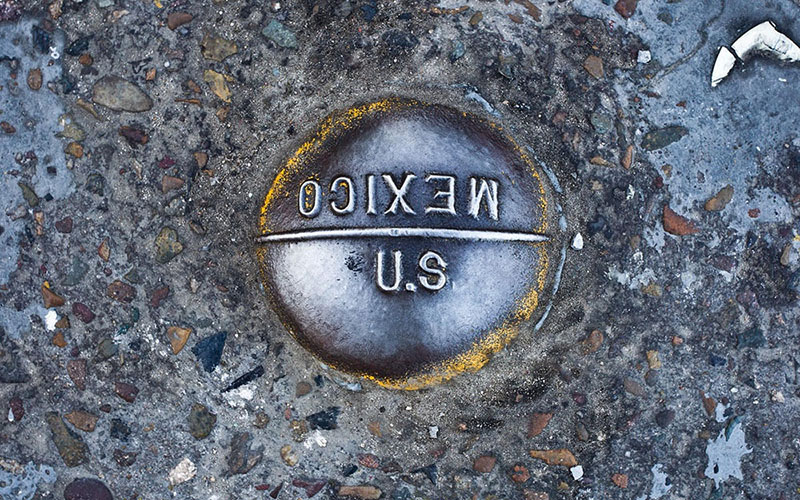
Two recent polls show that, for the first time, Mexicans have unfavorable feelings about the United States, a sharp change after years of improvements. American feelings about Mexico, however, were relatively unchanged in the same polls. (Photo by Josh Denmark/U.S. Customs and Border Protection)
WASHINGTON – Mexican attitudes toward Americans have gone through a “stunning reversal” since the election of President Donald Trump, with most Mexicans holding an unfavorable view of the U.S. for the first time.
That was a finding of two studies released Thursday at the Woodrow Wilson Center in Washington, D.C., which included several polls of U.S. and Mexican citizens on how they feel about each other.
One study by the Chicago Council on Global Affairs said Mexican opinions of the U.S. had completely flipped, from 66 percent who felt favorably of the U.S. in 2015 to 65 percent who have an unfavorable view today.
A Wilson Institute study from November echoed those findings, showing a marked spike in Mexican contempt and distrust for the U.S. in 2017 – a sharp reversal after several years of improvement in those categories.
Authors of the studies laid blame for the shift squarely on Trump’s presidential campaign and subsequent administration, with their frequent criticisms of Mexico.
“Obviously, I don’t think we would have the same state of relations even if we had a different president, even a different president from the same party,” said Craig Kafura, research associate at the Chicago Council of Global Affairs. “President Pence would not be in this position.”
-Cronkite News graphic by Philip Athey
Analysts at the event said there is more at stake than just neighborly feelings.
“I don’t think it’s too much to say U.S. Mexican relations are at risk,” said Christopher Wilson, deputy director of the Wilson Center’s Mexico Institute.
Although Mexican opinions of the U.S. declined, the studies showed American views on Mexico have remained generally favorable. That was “not what we expected,” Kafura said.
“Frankly, I expected opinion here to drop a bit simply because when you have a president who talks about Mexico as much as Trump talks about Mexico, and the way that he talks about Mexico, you’d expect that rhetoric to resonate a bit more.”
The Chicago study said the relatively positive views Americans hold “could be seen as a rejection of the president’s harsh statements about immigrants from Mexico and his desire to build a wall between the United States and Mexico.”
The feeling is not mutual. Esteban Guzman Saucedo, project director at the research group Buendia & Laredo, said the data show that “at least Mexicans’ view of the United States is in, like, the lowest place ever.”
Yuma Mayor Doug J. Nicholls was surprised by the findings. He said he has had nothing but good relations with the Mexicans he has met.
“I work from Mexicali to Rock Point to the capital of Sonora and I’ve not seen any of that,” Nicholls said. “I do a lot of work in Mexico. We’ve not really had any negative reaction at all.”
But that may not be surprising for Nicholls and others who live along the border. The Wilson Center study showed that people in border towns, who have daily, cross-border interactions, maintained positive views of their neighbors, north and south. Farther from the border, perceptions of the other country were worse, the poll found.
-Cronkite News graphic by Philip Athey
Bisbee Mayor David M. Smith called it a “perception problem” that stems from Mexicans assuming “how we think based on who we elected as president.” The same thing happens in the U.S., he said, for people who base their perceptions of Mexico on media coverage of the drug cartels.
Smith said there was an “immediate backlash” after Trump’s election, but after reaching out to mayors in Mexico, tourism is higher in Bisbee than it was before the election.
“I think it’s a perception problem, not a relations problem,” Smith said. “I think we have really pretty good relations” with cities across the border.
Duncan Wood, director of the Mexico Institute, said Trump’s tough rhetoric on Mexico may have had the opposite effect on the U.S. side of the border by raising interest in and awareness of Mexico as an important trading partner in people “who never thought about Mexico before.”
“In a perverse kind of way, long-term Trump may actually result in long-term favorability toward Mexico,” Wood said.